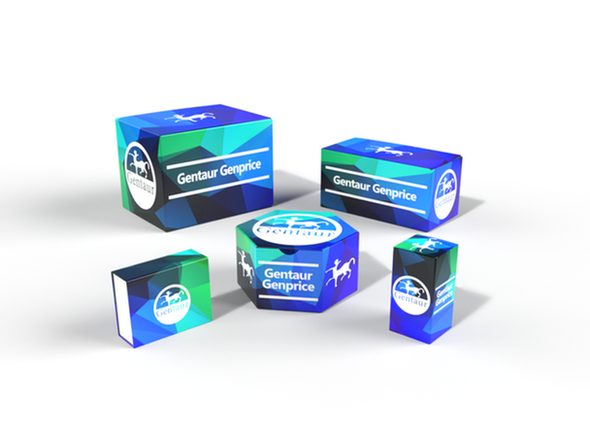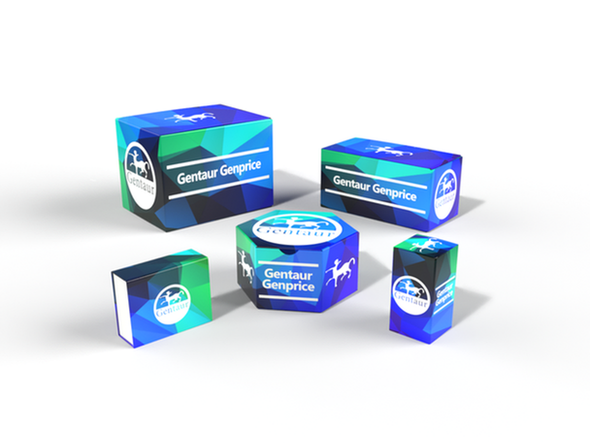740
Rat Anti-double stranded DNA (dsDNA) ELISA Kit | AE62713RA
- SKU:
- 740-AE62713RA
- Availability:
- Usually ships in 5 working days
Description
Rat Anti-double stranded DNA (dsDNA) ELISA Kit | AE62713RA | Gentaur UK, US & Europe Distribution
Species Reactivity: Rat (Rattus norvegicus)
Abbreviation: dsDNA
Alternative Name: N/A
Application: ELISA
Range: Request Information
Sensitivity: Request Information
Intra-Assay: ≤6.2%
Inter-Assay: ≤8.1%
Recovery: 0, 98
Sample Type: Serum, Plasma, Other biological fluids
Detection Method: Competitive ELISA
Analysis Method : Qualitative
Test Principale: This assay employs the competitive enzyme immunoassay technique. The microtiter plate provided in this kit has been pre-coated with an antibody specific to dsDNA. Standards or samples are then added to the appropriate microtiter plate wells with a Horseradish Peroxidase (HRP) -conjugated dsDNA and incubated. The competitive inhibition reaction is launched between with HRP labeled dsDNA and unlabeled dsDNA with the antibody. A substrate solution is added to the wells and the color develops in opposite to the amount of dsDNA in the sample. The color development is stopped and the intensity of the color is measured.
Product Overview: Antibodies against dsDNA are found during active phases of SLE. The amount of the serum concentration is positively correlated with the severity of the disease. Thus, detection of these autoantibodies is important for the diagnosis and the clinical monitoring of SLE. Consequently it has been established as 1 of the 11 ACR-criteria for the diagnosis of SLE. Most patients with SLE display IgG class antibodies against dsDNA. These autoantibodies are associated with lupus nephritis.Approximately 30% of the SLE patients develop IgA class anti-dsDNA antibodies, additionally. There have been suggestions that the presence of these IgA class anti-dsDNA antibodies may define a certain subset of SLE patients. Indeed studies demonstrated the association of this subclass with certain parameters of the disease activity.
Stability: The stability of ELISA kit is determined by the loss rate of activity. The loss rate of this kit is less than 5% within the expiration date under appropriate storage condition. The loss rate was determined by accelerated thermal degradation test. Keep the kit at 37°C for 4 and 7 days, and compare O.D.values of the kit kept at 37°C with that of at recommended temperature. (referring from China Biological Products Standard, which was calculated by the Arrhenius equation. For ELISA kit, 4 days storage at 37°C can be considered as 6 months at 2 - 8°C, which means 7 days at 37°C equaling 12 months at 2 - 8°C) .






